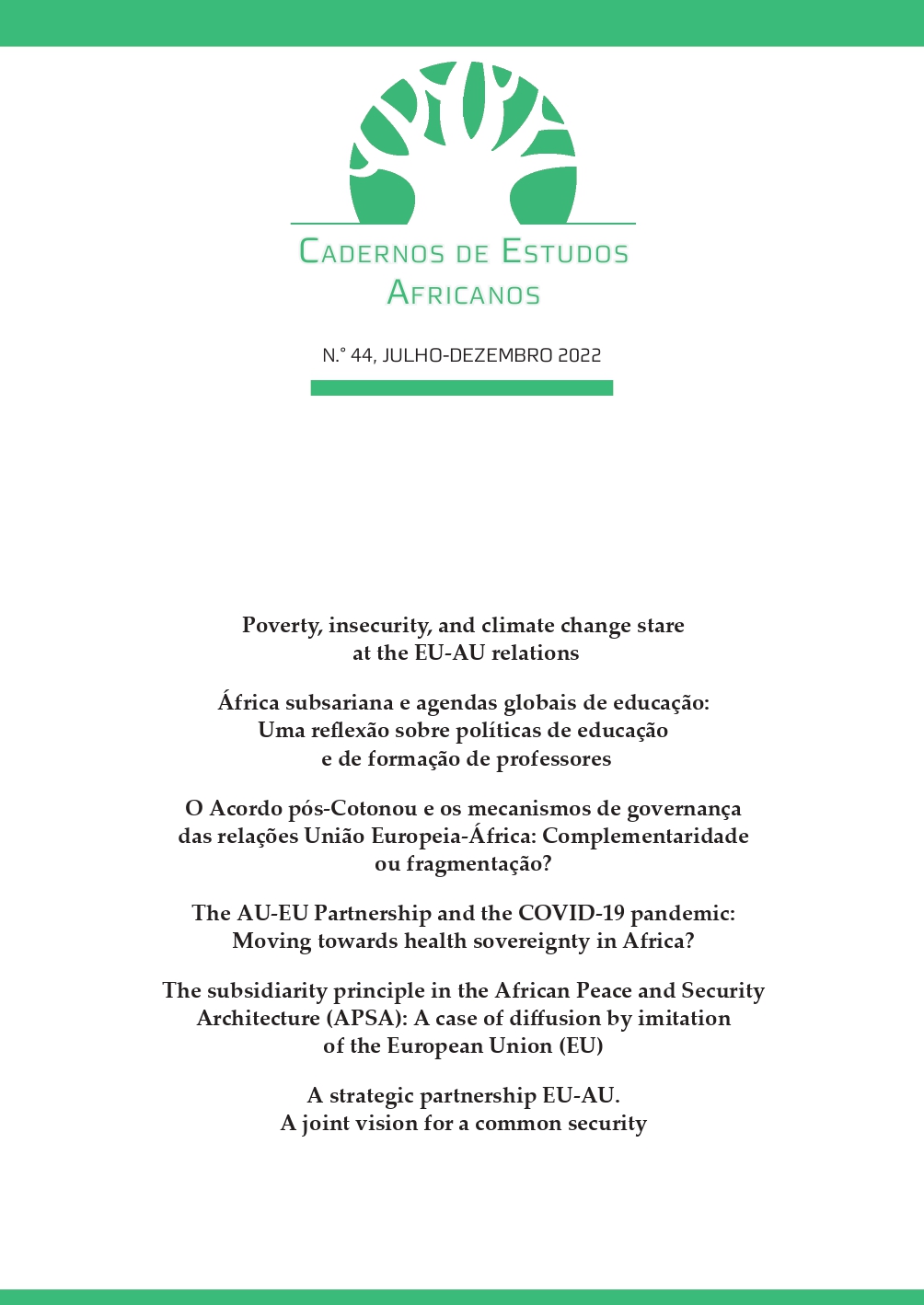Introdução
DOI:
https://doi.org/10.4000/cea.7284%20Resumo
Since the inception of the European Communities, Africa has been on the horizon for the development of foreign and diplomatic relations, largely due to European states’ will to maintain relations with former colonies and to exert some form of normative power (Haastrup, 2013). However, both the institutional developments in practice and the study of European-African relations have been marked by an asymmetrical hierarchical relationship imbued with post-colonial characteristics. Reasons for this state of affairs are often attributed to Africa being a complex continent with more than fifty countries with porous and volatile border areas and differentiated relationships with both the European Union (EU) and its Member States. On the other hand, Europe is also made up of a myriad of different states with very different and oftentimes complex historical relationships with African countries. (...)
Downloads
Publicado
Edição
Secção
Licença
Direitos de Autor (c) 2024 Cadernos de Estudos Africanos

Este trabalho encontra-se publicado com a Licença Internacional Creative Commons Atribuição-NãoComercial-CompartilhaIgual 4.0.
Autorizo a publicação do artigo/recensão submetido do qual sou autor.
Declaro ainda que o presente artigo é original, que não foi objecto de qualquer tipo de publicação, e cedo em exclusivo os direitos de publicação à revista Cadernos de Estudos Africanos. A reprodução do artigo, no todo ou em parte, noutras publicações ou noutros suportes depende de autorização prévia da editora Centro de Estudos Internacionais do Iscte - Instituto Universitário de Lisboa.

